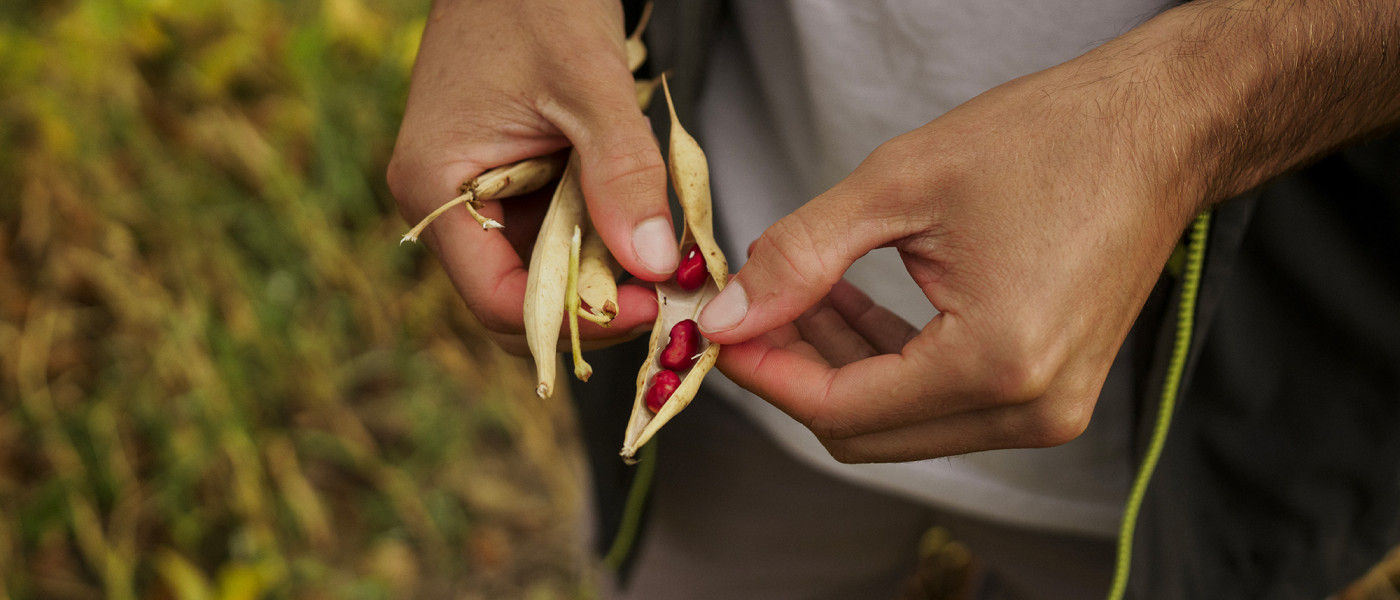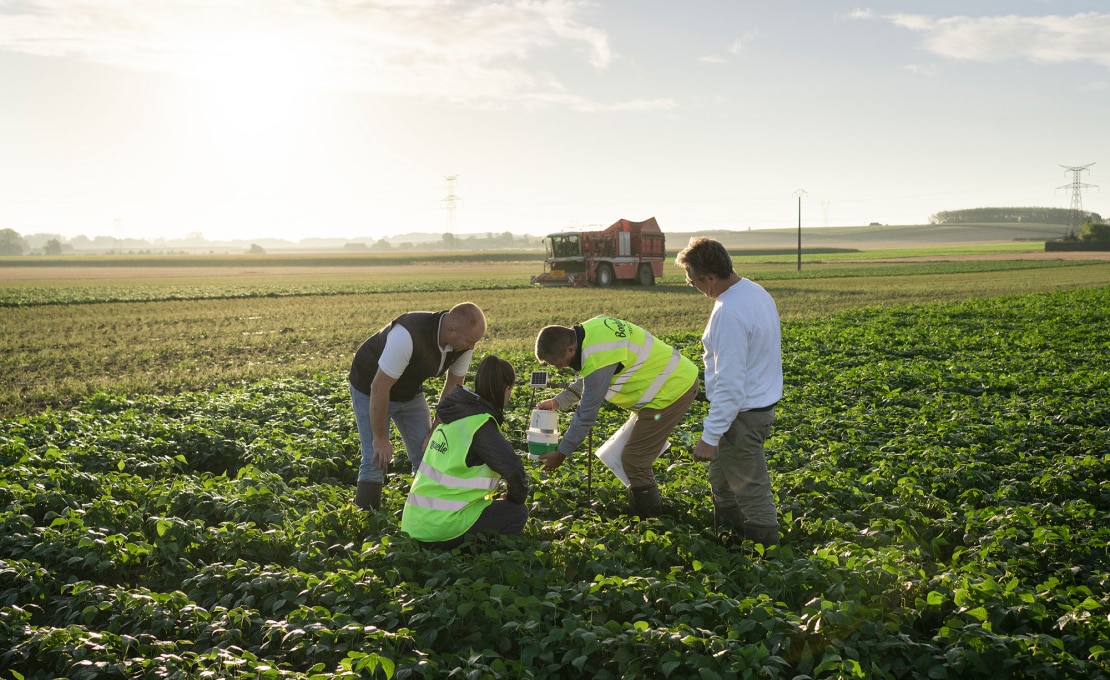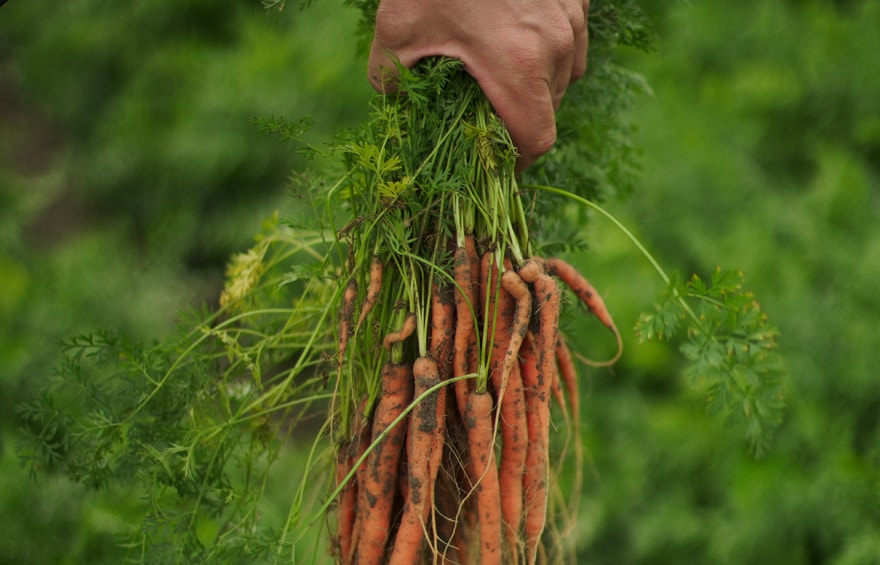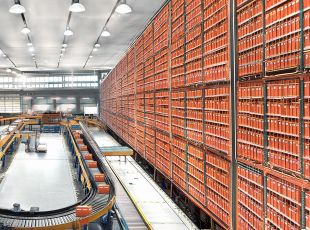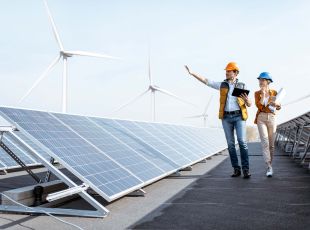Bonduelle, committing to regenerative agriculture
With more flexitarians than ever before, and more vegetables being consumed in general, there is a clear opportunity for food producers like Bonduelle, an international group whose vegetable products are distributed across almost 100 countries, with annual sales of €2.4 billion. The family-owned business founded in northern France in 1853 is now championing a vegetable-based diet – as greens cease to be seen as just a side dish – with produce that is grown using sustainable agricultural practices.
Throughout its strategic transition, which requires continuous innovation to adapt to changing customer needs, Bonduelle has relied on BNP Paribas to enhance its financial and sustainability goals, strengthening a close relationship that began 45 years ago as it helped finance operations across multiple business lines and countries.
For those who move the world: Bonduelle & BNP Paribas
Bonduelle applies sustainable agricultural practices: plot rotation to protect soils, innovation to preserve water resources while promoting biodiversity in ecosystems. The French company is also stepping up its decarbonization efforts, contributing to the circular economy and facilitating the transition to plant-based food.
The need for a long-term, trusted financial partner
Olivier Touchaud, Group Financing & Treasury Director at Bonduelle, underlines the cyclical character of the company’s operations, spread out over the seasons – first planting, then harvesting, and finally storage of the produce for 12-18 months. In addition, long-term partnerships are formed with growers, with prices fixed in advance, while agricultural innovations can be costly. This all poses significant financial challenges: it is a capital intensive business.
“It’s quite simple: Bonduelle needs a long-term financial partner. A partner who works alongside us, and who also understands our challenges. A strong partner in areas of expertise such as cash management. A local partner, but also with an international presence, since Bonduelle is present on several continents and in many countries,” says Olivier Touchaud. Indeed, Bonduelle has 42 agro-industrial sites globally, as well as 2,030 farming partners that collectively cultivate some 68,000 hectares around the world.
Olivier Touchaud adds that BNP Paribas fits well with the company’s core values of trust and excellence: “This trust is established by the excellence of BNP Paribas’s teams.” It was this trust that led Bonduelle to choose BNP Paribas to assist in a strategic restructuring in North America in 2022, through a mandate to sell a 65% stake in its canned and frozen businesses there so that the company could focus on its branded activities.
“This is a perfect example of the quality of the relationship we have with BNP Paribas,” says Gregory Sanson, Director of Finance, Digital Transformation and Geographical Development at Bonduelle. “Thanks to BNP Paribas’s excellent knowledge of both investors and the food market in North America, we were able to find the right partners with whom we shared values and a long-term vision,” he adds.
Bonduelle highlights two priorities for its role in the ecological transition: the preservation of water resources, and promoting regenerative agriculture practices.
The impact of the sustainability revolution
The funds from the operation not only allowed Bonduelle to invest more in innovation, expanding its product range, and boosting competitiveness. Also, it enabled the company to deepen its ecological transition as well as step up its decarbonization efforts as part of the energy transition – with the goal of reducing emissions by 38% by 2035. In addition, Bonduelle aims to contribute to the circular economy by ensuring that 100% of its packaging will be recyclable or reusable by 2025.
Bonduelle highlights two priorities for its role in the ecological transition: the preservation of water resources, and promoting regenerative agriculture practices. While almost half of Bonduelle’s farming partners already engage in regenerative agriculture, their goal is for that to increase to at least 80% by 2030.
Bonduelle is now championing a vegetable-based diet with produce that is grown using sustainable agricultural practices.
The partnership between Bonduelle and BNP Paribas entered a new phase in 2023 with the amendment of its €400 million syndicated revolving credit facility. As Mandated Lead Arranger Bookrunner, BNP Paribas helped secure an essential source of financing particularly suited to the seasonal nature of Bonduelle’s financing needs, including a two-year extension of the maturity. It also acted as ESG Coordinator, helping to strengthen the group's sustainability credentials by integrating two more ESG indicators into the business – carbon footprint reduction and contribution to regenerative agriculture with its agricultural partners – in addition to its B Corp certification, which will be complete by 2025.

